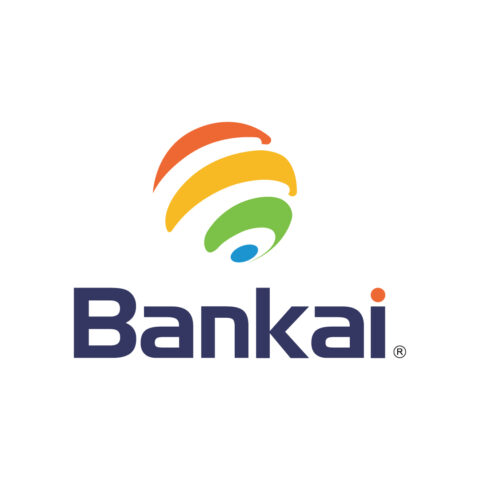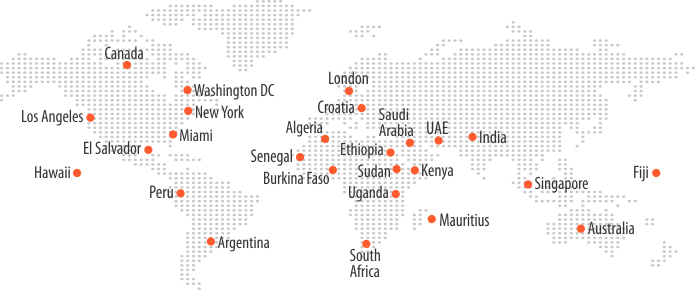Beyond Cost Savings: The Competitive Edge of Partnering with Modern Wholesale VoIP Providers

The wholesale VoIP market has matured beyond recognition, yet many strategic partnerships still operate under assumptions that made sense a decade ago. What once operated as a simple cost arbitrage play has evolved into something far more strategic and value-driven. The shift from viewing wholesale VoIP as a commodity procurement decision to recognizing it as a strategic partnership opportunity reflects broader changes in how telecom operators approach competitive positioning.
This shift is significant because relying solely on cost advantages no longer ensures long-term competitive sustainability. While favorable termination rates remain essential, true competitive differentiation now hinges on the innovation capabilities, network reliability, and operational excellence delivered by wholesale partners. Modern telecom operators recognize that their wholesale relationships directly impact customer experience, market expansion capabilities, and long-term business sustainability.
The urgency of adopting this strategic viewpoint becomes evident given current market realities. Customer demands have evolved significantly, with enterprise clients expecting guaranteed quality of service, comprehensive fraud mitigation, and seamless global compliance across all voice communications. At the same time, telecom providers face intense margin pressures and complex digital transformations requiring both streamlined operations and innovative services.
Let us have a closer look on how we arrived at this stage and how forward-looking wholesale VoIP providers are positioning themselves:
The Strategic Advantages: What Makes Modern Wholesale VoIP Providers Stand Out
Traditional wholesale VoIP was simple: find the most economical route and push calls through. Today’s providers do something entirely different. They use real-time data, machine learning, and global infrastructure to deliver better service at competitive prices. The difference shows in call quality, uptime, and what operators can actually offer their customers.
Let’s have a closer look:
Quality and Reliability
Advanced quality of service and exceptional reliability differentiate modern wholesale VoIP providers from traditional voice termination suppliers. These providers deploy intelligent routing systems that optimize for minimal latency and jitter rather than simply seeking the lowest-cost path. The routing decisions consider real-time network conditions, destination-specific performance metrics, and historical quality data to ensure consistent call completion rates and audio clarity.
Reduced Downtime and Overheads
Adding to it, geographic redundancy through global points of presence ensures reliability and performance. Contemporary providers employ distributed infrastructure that facilitates rapid failover capabilities during network disruptions, significantly reducing latency for international calls. Coupled with proactive, around-the-clock network monitoring, these capabilities prevent issues from affecting customer experience, reducing downtime and operational overhead.
Scalability and Flexibility
Noticeably, scalability and flexibility have become crucial distinctions as telecom operators increasingly face unpredictable demand patterns and shifting service requirements. Modern wholesale VoIP providers accommodate this by offering dynamic, on-demand capacity allocation and pay-as-you-grow pricing structures. This approach aligns costs directly with usage, allowing operators to expand seamlessly into new regions without traditional infrastructure investments or complicated regulatory hurdles.
API-based Integrations
API-driven integrations redefine wholesale relationships from basic interconnections into deeper platform collaborations. These APIs provide real-time routing control, detailed analytics, and automated billing integration, significantly simplifying operations and enabling tailored service offerings. Operators can thus efficiently meet specific customer requirements without manual processes or service disruptions.
Innovation and Value-Added Services
Innovation and value-added services are perhaps the most significant advantage of modern wholesale partnerships. Comprehensive fraud management solutions use machine learning algorithms to identify suspicious patterns in real-time, protecting operator margins while reducing administrative overhead. Traffic analytics dashboards provide detailed insights for revenue assurance, enabling operators to optimize their own routing decisions and identify new revenue opportunities.
Bundled Complementary Services
Furthermore, the bundling of complementary services such as SMS, omnichannel communications, and video solutions allows operators to deliver comprehensive, integrated communication offerings through single-provider relationships. This consolidation simplifies procurement and vendor management, resulting in improved customer satisfaction and reduced churn.
Real-World Impact: Use Cases for Telecom Decision Makers
Market expansion remains a significant benefit of modern wholesale VoIP partnerships. Traditional international expansion requires establishing direct carrier relationships, negotiating complex interconnection agreements, and building compliance frameworks for each target market. Modern wholesale providers enable fast service rollout through robust interconnects that provide immediate access to premium termination quality across multiple regions.
Regional carriers especially benefit from these capabilities when expanding globally. Instead of investing considerable time in market research and negotiations, they can quickly pilot new markets within weeks, maintaining consistent quality and significantly reducing financial and market-entry risks.
White-label solutions for retail resellers create significant opportunities, enabling operators to grow their customer base without heavy infrastructure investments. Modern wholesale providers deliver fully branded services, including comprehensive customer management portals, integrated billing, and dedicated technical support. This allows smaller operators to compete effectively with larger carriers by concentrating resources on customer acquisition and relationship management.
Improvements in customer experience directly translate into measurable business impact through enhanced call quality for enterprise clients. Modern wholesale partnerships commonly result in reduced call drops and higher clarity, both closely tied to increased customer satisfaction scores. SLA-backed guarantees introduce accountability and allow operators to confidently offer premium service levels.
Future-proof capabilities equip telecom operators for continued evolution, utilizing AI-driven routing and advanced fraud detection technologies. Predictive traffic analytics enable proactive capacity management and cost optimization while supporting comprehensive service offerings aligned with evolving enterprise demands. These technologies empower operators to remain at the forefront of innovation, rather than being disrupted by it.
How to Choose the Right Wholesale VoIP Partner
Picking the wrong wholesale VoIP partner costs more than money. It costs customers and reputation. The market is full of providers promising everything, but only a few deliver consistently. Here’s what separates reliable partners from those that create operational headaches: For a broader understanding of how to evaluate VoIP services in general, check out our detailed guide on choosing the best VoIP service provider.
Carrier Connections
Network footprint and the quality of interconnects form the backbone of reliable service. Evaluations should prioritize direct routes and strong carrier relationships over sheer geographic presence. Providers with direct Tier 1 carrier connections typically offer superior quality and more competitive rates compared to those reliant on intermediary pathways.
Quality Assurance & Monitoring
Quality assurance and monitoring capabilities have evolved as the key differentiators among professional providers from commodity suppliers. Real-time reporting systems and dedicated NOC support demonstrate operational maturity that translates directly to customer satisfaction improvements. The most valuable partnerships provide granular performance data that enables informed routing decisions and proactive issue resolution.
Risk Management & Compliance
Risk management and compliance readiness on the other hand, has become increasingly critical as regulatory requirements evolve across different markets. Proven fraud prevention mechanisms protect both network integrity and partner profitability. A provider’s strong reputation and track record in regulatory compliance indicate their readiness for sustainable international operations.
Financial Stability & Strategic Alignment
Initially, financial stability and long-term vision receive insufficient attention. However, as consolidation intensifies in the wholesale market, provider stability becomes a critical selection factor. Providers with strong financial backing can continuously invest in infrastructure and technology advancements, providing sustained partner benefits.
Strategic alignment is equally essential, including flexible pricing structures and adaptable contract terms to accommodate evolving business requirements. Responsive support and clearly defined escalation processes ensure timely resolutions of operational issues. Moreover, aligning innovation roadmaps and technology investments with partner strategies and objectives fosters mutually beneficial growth.
Conclusion
The next logical progression lies in actively assessing existing partnerships, identifying where enhancements in service quality, scalability, and innovation are needed, and pursuing relationships that support sustained market differentiation. Positioning your business to thrive in the evolving telecom marketplace requires wholesale partnerships that support your strategic objectives rather than simply reducing immediate costs. The operators who make this transition successfully will find themselves better positioned to capitalize on market opportunities while delivering the service quality that drives customer satisfaction and long-term profitability.
Bankai Group offers comprehensive, secure VoIP termination services to protect communications and mitigate risks. Connect with our experts to learn more about our secure VoIP solutions and how we can support your communication needs.





